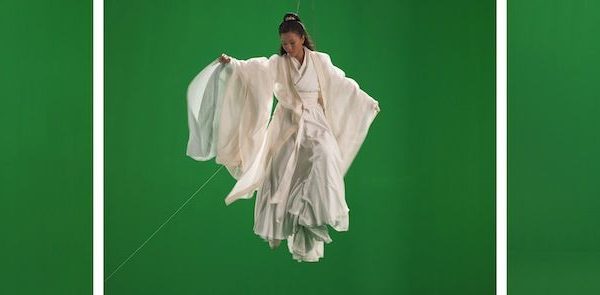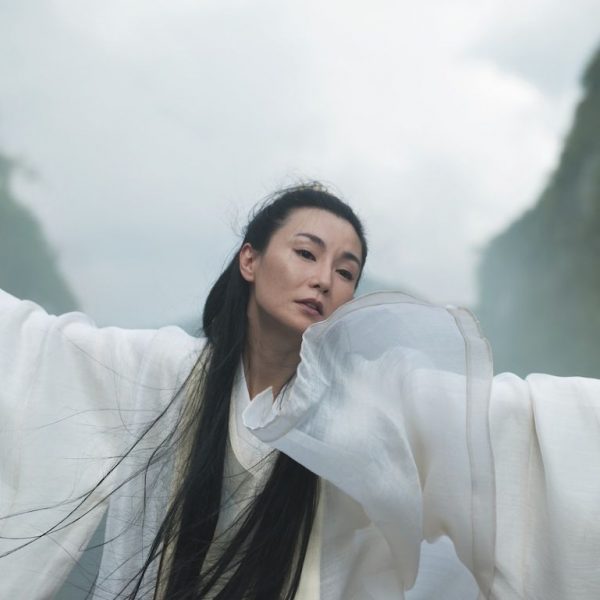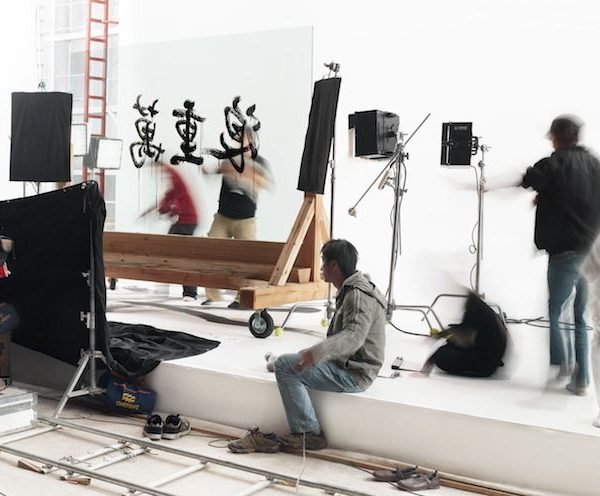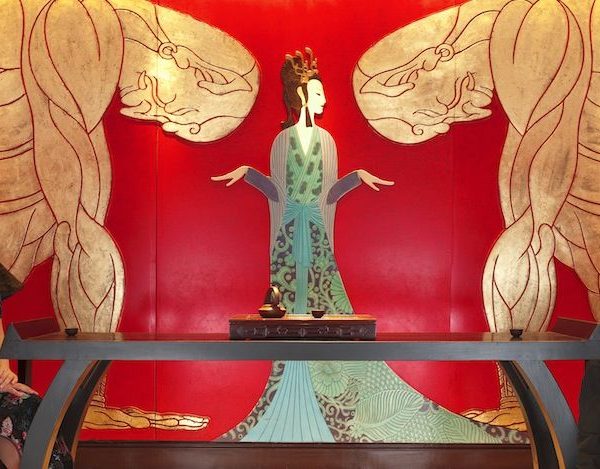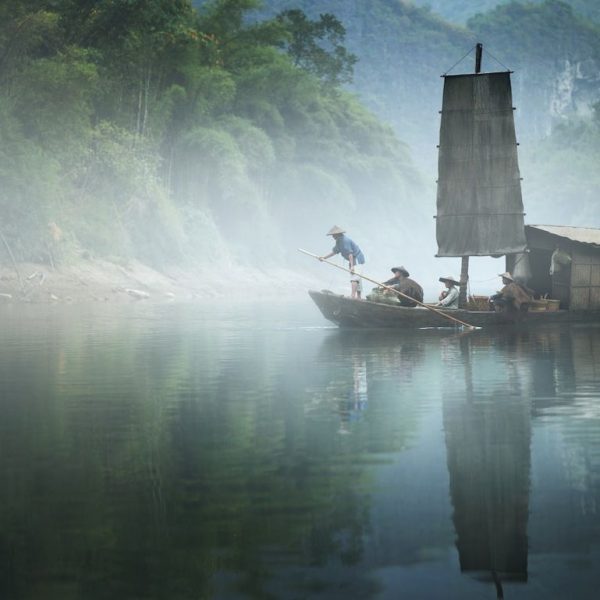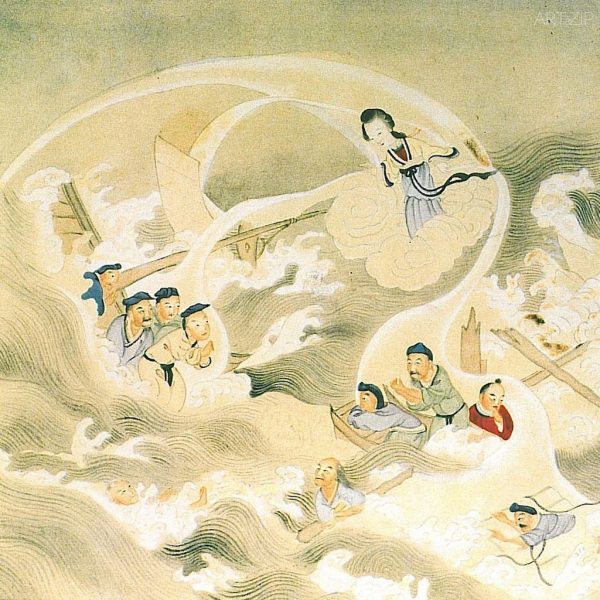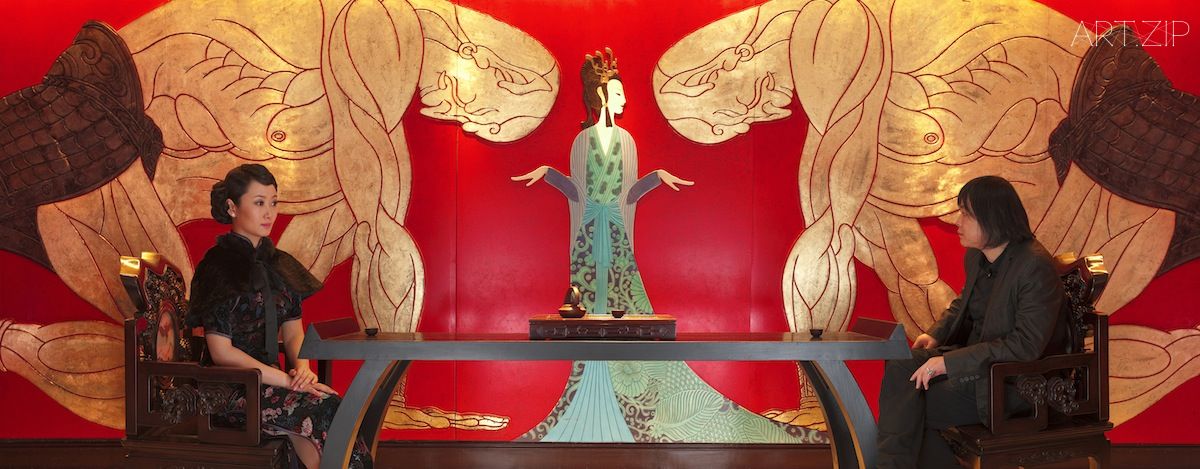
Being a ‘black ghost’ is probably something that Isaac has always had to deal with, and it has often been represented in his oeuvre. His filmography suggests recurrent themes of borders, cultural distance, isolation, the fight of the individual and race; studying in what was then the celebrated St Martin’s School of Art before its amalgamation with Central School of Art & Design.
MC: What was it like for you being in the minority as a black student in Thatcher’s London of the seventies and eighties, and did it influence your earlier pieces?
IJ: Sometimes it was a bit alienating, I must say.
MC:Did that alienation influence some of your earlier pieces?
IJ: I think it did. I’ve always felt that it was really important for me to make work, and to be there, on par with all my contemporaries, and there’s no way I was going to take a back seat. It’s really important to be there, right on the front line, in an avant-garde position. It was difficult back then. You’re trying to break through. You also had the Brixton riots of the 80’s[5], and because there were too many excluded voices from various kind of spaces, there was an encouragement – a political will – so I think I was part of that crest where there was an opening up, of course it soon closed back down.
MC: Has film and video art changed much over the past twenty years? Since the days when you first started?
IJ: Well, I think you’ve always had Expanded Cinema. There’s always been an interest in that. It wasn’t part of the art world, although it was happening in a version of it. What I think is interesting is that they talk about [6]Expanded Cinema Now, and there’s nothing about ‘Ten Thousand Waves’ in it, and maybe they made that book before, but I think that’s so typical of the euro-centricity.
MC: What do you think of the current wave of interest from the West in Chinese contemporary art?
IJ: I think it’s connected to the market, it’s really interesting, I just had a meeting with the October gallery, a small gallery, which is connected a little bit to hippy culture, and they represent William Burroughs – all of the diaspora arts – and I went there and thought they do amazing things and were there long before the fashioning, or what we now experience as a kind of global art circuit. One should hold a certain skepticism about the kind of expediencies of work related to more newly acquainted aspect of contemporary art, and its embrace of Chinese culture, both through collecting and gallery interest etc. I think in a way, it’s also part of acknowledging the fact that China will be the most important global culture – after all it’s the Middle Kingdom, and that is very interesting in terms of The West dealing with it.
MC: China is confident. Will it do what it chooses?
IJ: In a way, but I think it will have to re-think that a little bit! China doesn’t really believe in cultural difference, it’s a Mandarin centric culture – that’s what everyone is meant to be – Han. Everybody is Han. All of these aspects have to be thought through differently.
The afternoon has flown, and although I could sit and converse with Isaac for the rest of the day, however, his studio staff need to tie up loose ends before they leave for the summer vacation – so my final question returns to the theme of journeys.
MC: What did you learn or gain through your own journey from the beginning to the end of making ‘Ten Thousand Waves’ in China?
IJ: I think I got some familiarization with Chinese culture. China is a big place, so I still know nothing, but it’s something for me like an aesthetic journey – both a critical ethnography, trying to engage both in Chinese culture in the arts of cinema and the art world, and it was also this trans-cultural rationalization. People in the West always refer to China in economic terms, but they don’t really talk about it in terms of the cultural or aesthetic exchange – and what about the spiritual exchange? It is just this kind of fiscal, financial exchange – so that’s one of the things that gets me thinking – but as I said, China chose me, I didn’t choose China.
MC: Maybe Mazu called you?
IJ: Maybe Mazu did call me!
As I leave, I am left with the impression that we will keep returning to ‘Ten Thousand Waves’, an important piece that in order to be presented to a new cultural audience in China, had to be made by a British artist.
Tips:
Isaac Julien is represented by Victoria Miro, London; Metro Pictures, New York; Galeria Helga de Alvear, Madrid; Roslyn Oxley, Australia; Almine Rech, Brussels.
——————————

